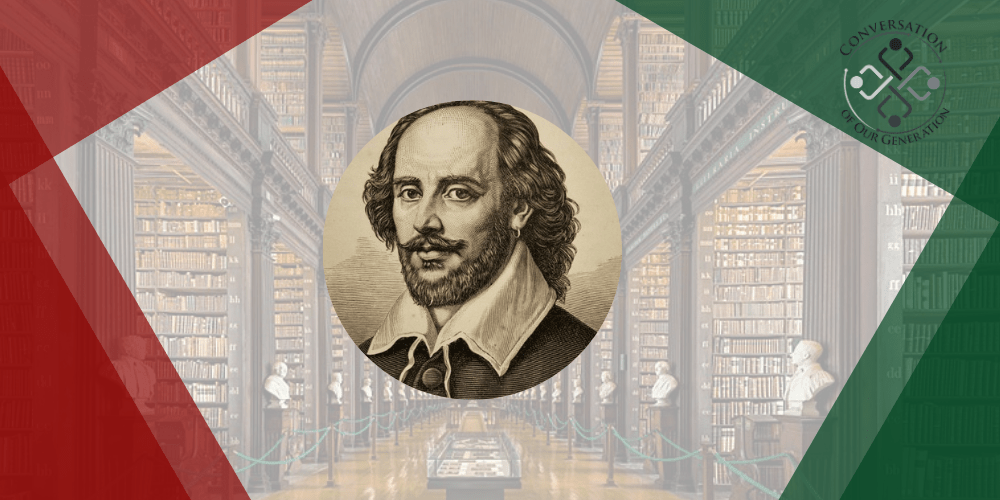Shakespeare’s Comedy of Errors is a great example of how slapstick comedy in literature can bring life to a story and make it more enjoyable. And that is what I discuss on today’s podcast: what comedy is, and how it’s used literature and stories.
[podcast_subscribe id=”7542″]
[maxbutton id=”1″]
What is comedy?
Definition of Comedy
The dictionary defines comedy as: “professional entertainment consisting of jokes and satirical sketches, intended to make an audience laugh.” And that covers the normal modern meaning.
Definition of a Comedy as Literature
But, they also include this definition (among others), “a play characterized by its humorous or satirical tone and its depiction of amusing people or incidents, in which the characters ultimately triumph over adversity.”
Today, I want to dive into the elements of comedy, and how they’re used in literature, especially Shakepeare’s Comedy of Errors.
“Comedy is simply a funny way of being serious.”
–Peter Ustinov
[maxbutton id=”2″]
Types of Comedy
The basic types of comedy look like these:
- Affiliative
- Aggressive
- Self-enhancing
- Self-defeating
Some of the major genres of comedy
- Slapstick humor
- Improvisational humor
- Wit
- Incongruity
- Irony
- Satire
- Parody
- Standup Comedy
- (read more here)
Comedy in Literature
The types of humour in literature vary based on the time they’re in and the type of work it is. In tragedies, for instance, humour is often used to lighten the mood or distract from the tragic events. Basically, it is a tool used to entertain while set changes happen in plays, or provide some relief from the story.
However, in comedies, humour is central to the story. Not only does humour play out throughout the story, but it also fills the whole story with levity. That way, when the adversity comes, we can not dwell too much on that, rejoicing in the triumph instead. In comedic literature, we should focus on the bright side, rather than focus on the small adversities that make a story interesting.
Shakespeare’s use of Comedy in his Literature
The conclusion of comedy in literature, as the definition above showed, is a happy one. It is where the characters overcome any challenges and live happily ever after. In Shakespeare’s works, however, he often plays with this genre a bit. Romeo and Juliet, for instance, appears to be a comedy until the two star-crossed lovers meet their tragic ends.
“Am I in earth, in heaven, or in hell?
(Antipholus of Syracuse, Act 2 Scene 2)
Sleeping or waking, mad or well-advised?
Known unto these and to myself disguised?
I’ll say as they say, and persever so,
And in this mist at all adventures go.”
[maxbutton id=”2″]
Other Book Reviews on Shakespeare’s works:
185. Civil Unrest in Shakespeare’s Henry VI
161. Book Review | Titus Andronicus By William Shakespeare

Leave a Reply